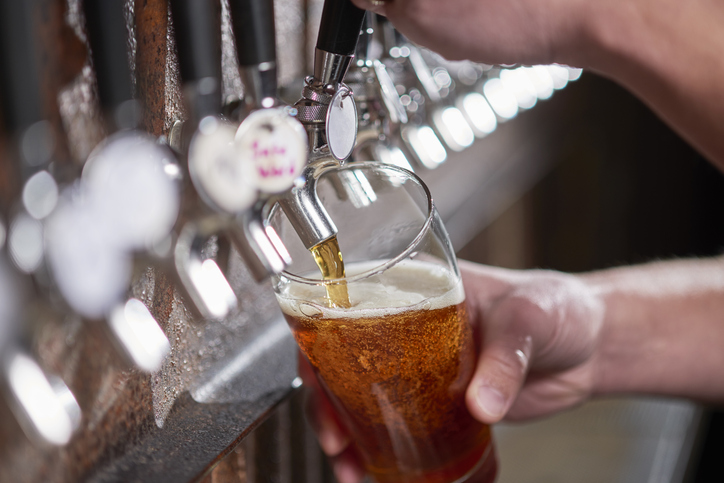ii view: JD Wetherspoon sales slump more than a quarter
Covid is hurting, but this low-cost pub operator remains favoured. Here’s why.
11th November 2020 15:18
by Keith Bowman from interactive investor
Covid is hurting, but this low-cost pub operator remains favoured. Here’s why.

Trading update for 15 weeks to 8 November
- Like-for-like sales down 27.6%
- Liquidity of £234 million as of 25 October
Chief executive Tim Martin said:
"For any pub or restaurant company trading in different parts of the UK, and for customers generally, the constantly changing national and local regulations, combined with geographical areas moving from one tier to another in the different jurisdictions, are baffling and confusing. The entire regulatory situation is a complete muddle.
“However, the initial regulations, following reopening, introduced on 4 July, were carefully thought through, followed thorough consultation, and were based on solid scientific foundations of social distancing and hygiene. The benefits of the regulatory hyperactivity since then, including the imposition of a curfew, are questionable.”
ii round-up:
Pub operator JD Wetherspoon (LSE:JDW) today reported a deterioration in sales, hindered by new pandemic measures including changes in local lockdown tiers and a 10pm closing time.
Like-for-like sales for its effective first quarter or 15-week period fell by 27.6%, an acceleration from the 15% fall suffered over the first 11 weeks. October sales were significantly lower than previous months.
But Wetherspoon shares fell by less than 1% in afternoon trading, leaving their year-to-date fall at around a third. Shares for rival pub operators Mitchells & Butlers (LSE:MAB) and Marston's (LSE:MARS) have both halved in 2020.
Across England, Northern Ireland and the Republic of Ireland, 756 Wetherspoon pubs are currently closed. In Scotland, 64 pubs are open but subject to restrictive pandemic measures. In Wales, 51 outlets are currently open.
Management measures to date to battle Covid-19 having included suspending the dividend payment, reducing capital expenditure, raising funds and using the government’s furlough scheme for its employees. It has also laid-off 108 staff from its head office and commenced a consultation process to reduce staff at it airport pubs.
The company’s cash liquidity stood at £234 million as of 25 October, up from £194 million at its last full financial year end in late July. Group cash burn during the current one-month closure under lockdown is estimated to be £14 million.
Its next trading update is scheduled for 20 January.
ii view:
Founded in 1979 in North London, Wetherspoon today is headquartered in Watford, Hertfordshire, and operates over 850 pubs. It also runs more than 50 hotels connected to its pub outlets with around 1200 rooms available.
For investors, despite recent news of a potential virus vaccine, uncertainty regarding the outlook persists. Chief executive Tim Martin has also expressed his concern that temporary government measures have in the past become long term. The dividend payment also remains suspended, while net debt over its last financial year grew by £80 million to £817 million.
However, estimated cash burn of £14 million during a month of closure implies 16-plus months of headroom, according to broker Morgan Stanley. Covid constrained incomes and rising unemployment also make its value offering important to many consumers. In all, its strong track record and ability to bear down on costs continue to leave its favoured in what is still a high-risk uncertain sector.
Positives:
- Increased cash liquidity
- Value customer offering
Negatives:
- Uncertain Covid clouded outlook
- Suspended dividend payment
The average rating of stock market analysts:
Buy
These articles are provided for information purposes only. Occasionally, an opinion about whether to buy or sell a specific investment may be provided by third parties. The content is not intended to be a personal recommendation to buy or sell any financial instrument or product, or to adopt any investment strategy as it is not provided based on an assessment of your investing knowledge and experience, your financial situation or your investment objectives. The value of your investments, and the income derived from them, may go down as well as up. You may not get back all the money that you invest. The investments referred to in this article may not be suitable for all investors, and if in doubt, an investor should seek advice from a qualified investment adviser.
Full performance can be found on the company or index summary page on the interactive investor website. Simply click on the company's or index name highlighted in the article.